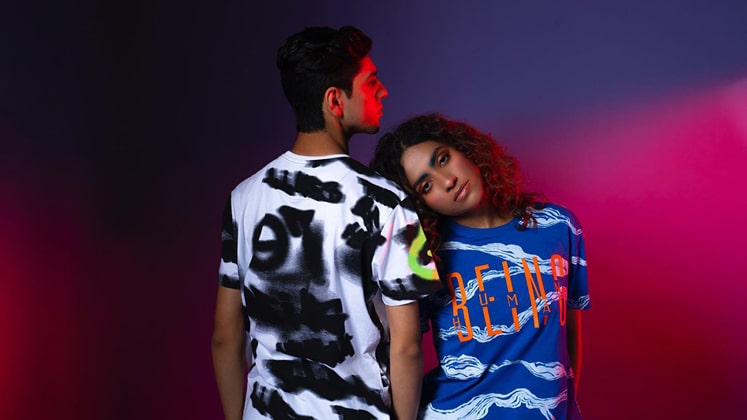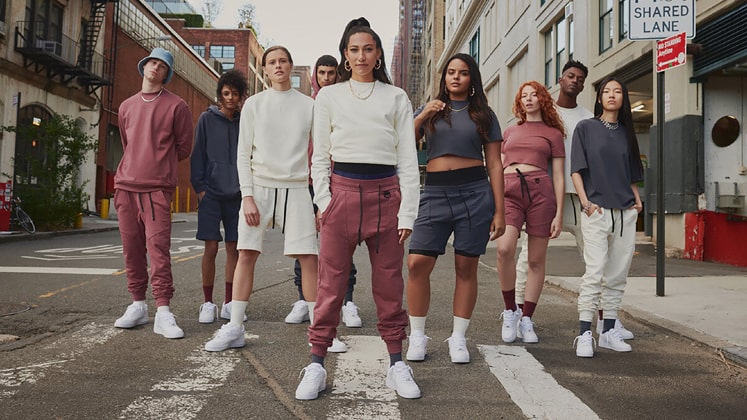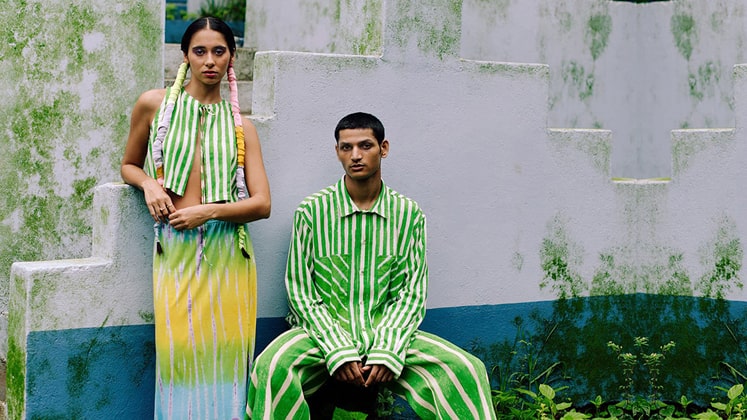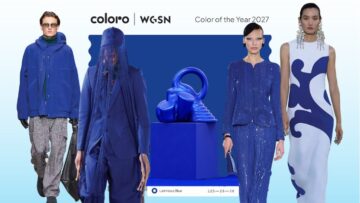Discussions around gender neutrality and LGBTQ+ rights have been evolving globally, including in India, where significant developments have occurred over the past decade about recognising and protecting the rights of transgender individuals. In 2014, the Supreme Court of India acknowledged transgender persons as a third gender and affirmed their right to self-identification.
This growing acceptance of gender neutrality has not only impacted society but also the fashion industry, giving rise to gender-neutral clothing as a means to foster inclusivity. With the increased recognition and understanding of diverse gender identities, traditional norms have been challenged, leading to a transformation in fashion design, marketing and consumption. Consequently, the global gender-neutral clothing market is projected to experience a compound annual growth rate (CAGR) of 6.5 per cent from 2021 to 2030, reflecting the expanding demand for more inclusive fashion.
In India, the demand for genderless clothing is concentrated in metropolitan cities and regions with a progressive and inclusive mindset. As per experts, Mumbai, the fashion capital, has a vibrant market for gender-neutral clothing, supported by fashion designers and brands promoting inclusive designs. Bengaluru, with its young and cosmopolitan population and thriving LGBTQ+ community, embraces experimental and inclusive fashion, contributing to the demand. Delhi, the fashion hub and a mix of traditional and modern influences, attracts fashion-conscious individuals to appreciate genderless clothing, showcased in fashion weeks and events. Pune, with its progressive outlook and significant student and professional population, seeks genderless options. Hyderabad, with an evolving fashion industry and an inclusive culture, sees an increase in fashion-forward individuals embracing genderless fashion. While demand is higher in these cities, the acceptance of gender diversity is spreading fast, indicating expected growth in other cities and regions of the country soon.
Fashion industry has an eye on the unisex clothing segment and is quite hopeful
According to designer Kunal Anil Tanna, although gender-neutral clothing has been a part of Indian culture since ancient times, the contemporary version is a relatively recent phenomenon in India. The country is still adjusting and embracing this concept. While there is a segment of people who are open to and interested in exploring unisex styles, the majority of available gender-neutral clothing in India is primarily limited to sportswear for now.
Mriga Kapadiya and Amrit Kumar, Co-founders of NorBlack NorWhite, believe that people rarely fall into prescriptive boxes. They exist within the grey and this notion of the spectrum and a rejection of the binary is what has led them to create their vivid line and the conceptual thinking behind it.
Fashion designers and brands are now creating collections that blur the lines between menswear and womenswear, focusing on unisex or gender-neutral designs. These garments often feature relaxed silhouettes, minimalistic styles and neutral colour palettes that appeal to a broad range of individuals. The emphasis is on creating versatile, comfortable and inclusive pieces that can be worn by anyone, regardless of their gender identity.
There are several designers in India who are into gender-neutral designs. For example, Parul Gupta is designing gender-neutral shirts, trousers, dresses, skirts and shirt dresses with her brand Yuga. Hansika Chhabria has founded a gender-neutral label called One Less with the objective to make sustainable fashion accessible in India.
One of the designers Shyma Shetty, Co-founder of Huemn believes both men and women are embracing the trend of sharing wardrobes and styles, signalling an exciting evolution in the world of fashion
Moreover, the fashion industry’s increased representation and visibility of gender non-conforming models, influencers and public figures have played a crucial role in challenging societal norms and promoting the acceptance of gender-neutral clothing. This representation helps to normalise and celebrate diverse gender expressions and encourages individuals to explore fashion without conforming to traditional gender expectations.
The influence of social commerce
Social commerce has revolutionised the way retailers interact with consumers. Platforms such as Instagram, Facebook and TikTok have become powerful tools for showcasing fashion and connecting with customers. GenZ, social media influencers and content creators have played a significant role in promoting inclusivity and advocating for gender-neutral fashion.
Through the following means, social commerce has pushed retailers to pay attention to the gender-neutral segment:
- Increased visibility: Social media provides a platform to individuals to express their unique styles and preferences, including those who identify with the gender-neutral segment. This visibility has created a demand for fashion retailers to cater to this diverse audience.
- Consumer empowerment: Social media has empowered consumers, allowing them to voice their opinions, preferences and demands directly to retailers. As a result, retailers are compelled to listen and adapt to meet the needs of the gender-neutral segment.
- Influencer impact: Influencers and content creators who champion inclusivity and gender neutrality have gained substantial followings. Their endorsement of gender-neutral fashion has influenced consumer perceptions and driven the popularity of this segment.
Style and colour preferences
This emerging fashion domain often embraces androgynous and minimalist aesthetics, focusing on versatile silhouettes and clean cuts.
Loose and oversized clothing items, such as boxy shirts, wide-leg trousers and oversized blazers are popular choices within the gender-neutral segment. These silhouettes allow for comfort and ease of movement. Gender-fluid designs blur the lines between traditional men’s and women’s fashion. This may include pieces like tailored suits with feminine details, flowing tunics or unisex jumpsuits.
This segment also embraces the comfort and style of athleisure and streetwear. Joggers, hoodies, oversized T-shirts and sneakers are commonly incorporated into gender-neutral outfits.
When it comes to colour preferences, gender-neutral tends to gravitate towards a range of shades that are not strongly associated with any specific gender. While personal style and individual preferences may vary, earthy tones like beige, camel, khaki and olive are popular choices, Monochromatic palettes such as black, white and shades of grey are widely embraced. Soft pastels, muted tones and subtle pops of colour like dusty pink, lavender or sage green often add a touch of vibrancy to gender-neutral outfits.
Some big brands in the industry have understood the importance of unisex clothing and are very adaptive to penetrating into the ideology of the youngsters and their demands. For instance, Being Human has launched a quirky collection named ‘Blur’ which caters to the unisex category where the collection can be worn by any gender.
| “We’ve noticed that women often try on men’s T-shirts. That’s why it was crucial for us to create a gender-neutral collection that can be worn by both men and women, especially considering the layering aspect of fashion. We introduced Blur and although it currently accounts for 4 to 5 percent of our sales, it’s steadily increasing. There is a significant market for unisex fashion, both in India with numerous local brands launching gender-neutral clothing, and internationally with a substantial presence of such brands,” states Sanjeev Rao, CEO, Being Human |
Similarly, The Souled Store and Bewakoof have also developed their collections to cater to this specific segment of customers. These brands have recognised the demand for products that resonate with the preferences and tastes of this particular group.

The leading gender-neutral clothing brands in India are:
- NorBlack NorWhite: A gender-neutral clothing brand that offers minimalist, unisex designs with a focus on comfort and functionality.
- Huemn: This brand challenges traditional gender norms with its gender-neutral collections, blending elements from menswear and womenswear to create unique and inclusive pieces.
- Bobo Calcutta: Known for its bold and vibrant designs, Bobo Calcutta offers gender-neutral clothing that celebrates individuality and self-expression.
- Bloni: Bloni is a sustainable and gender-neutral brand that focuses on minimalistic and androgynous designs, offering a range of versatile clothing options.
- Anaam: Anaam is a brand that embraces gender neutrality and offers avant-garde, unisex designs that defy conventional fashion norms.
- Six5Six Street: This streetwear brand provides gender-neutral clothing with a contemporary and edgy aesthetic, catering to individuals who seek urban and inclusive fashion.
- Crow: Crow is a gender-fluid brand that creates unique and experimental designs, blurring the lines between traditional menswear and womenswear.
- Genes Lecoanet Hemant: This brand offers gender-neutral collections that promote fluidity and inclusivity, combining classic and contemporary styles.
- Anaisha: Anaisha focuses on comfortable, versatile and contemporary clothing for individuals who prioritise self-expression.
- Nicobar: This Indian lifestyle brand has a collection called ‘Unisex Edit’, which includes gender-neutral clothing such as oversized shirts, reversible jackets and fluid trousers.
- Shift: This Mumbai-based brand offers a range of gender-neutral clothing that includes loose-fitting dresses, oversized shirts and unisex jackets.
Popular Indian designers who have embraced gender fluidity include names like Mriga Kapadiya who emphasises the universal appeal of tie-dye, describing it as a must-have for both men and women, bringing joy and vibrant colours to any outfit. Sahib Dang observes that inclusivity is no longer a passing trend, as more brands actively embrace it and think critically about its representation in fashion. Isha Ahluwalia emphasises that clothing serves as a gateway for self-expression and reflects the evolving world around us. This collective sentiment highlights the transformative power of gender-neutral fashion and its potential to redefine the narrative of self-identity and personal style.
Leading Indian designers who are shaping the gender-neutral clothing landscape are:
- Kallol Datta: Kallol Datta is a Kolkata-based designer known for avant-garde and unconventional designs. Datta’s collections often blur the lines between menswear and womenswear, featuring oversized silhouettes, asymmetrical cuts and gender-neutral aesthetics.
- Dhruv Kapoor: Dhruv Kapoor is a Delhi-based designer who explores gender fluidity and non-conformity in his designs. Kapoor’s collections often feature oversized silhouettes, experimental tailoring and a fusion of menswear and womenswear elements.
- Urvashi Kaur: Urvashi Kaur is a designer known for her sustainable and gender-fluid designs. Her collections draw inspiration from Indian textiles and traditional craftsmanship, offering fluid silhouettes and versatile pieces that can be worn by individuals of any gender.
- Shani Himanshu and Mia Morikawa: 11.11/eleven eleven is a sustainable fashion brand founded by Shani Himanshu and Mia Morikawa. The brand’s collections feature relaxed and gender-neutral silhouettes, natural fabrics and a blend of traditional Indian techniques with contemporary designs.
There are several international designers and brands which recognise the importance of breaking free from traditional gender norms and they are making a conscious effort to create fashion clothing lines that are accessible and appealing to individuals of all genders.

- Rad Hourani: Rad Hourani is a Canadian designer known for his unisex and genderless designs. The collections feature clean lines, minimalist aesthetics and versatile silhouettes that can be worn by individuals of any gender.
- Telfar Clemens: Telfar, founded by Telfar Clemens, is a New York-based brand that has gained popularity for its gender-neutral designs. Its signature bag, the Telfar Shopping Bag, has become a symbol of inclusivity and accessibility.
- Alejandro Gómez Palomo: Palomo Spain, led by designer Alejandro Gómez Palomo, is a Spanish brand that challenges gender norms through its ethereal and romantic designs. The brand’s collections blur the lines between menswear and womenswear, creating a unique and gender-fluid aesthetic.
- Rob Smith (The Phluid Project): The Phluid Project, based in New York City, is a gender-free retail space and brand that aims to create a safe and inclusive environment for all. It offers a wide range of gender-neutral clothing, accessories and beauty products.
- Charles Jeffrey (LOVERBOY): LOVERBOY, founded by Scottish designer Charles Jeffrey, challenges gender norms through vibrant and expressive designs. His collections incorporate elements of both menswear and womenswear, embracing a fluid and inclusive approach to fashion.
Many such Indian and global designers are creating ripples when it comes to widespread promotion and rise in demand for gender-neutral clothing and are prepping up the fashion industry for a more inclusive and diverse future.








